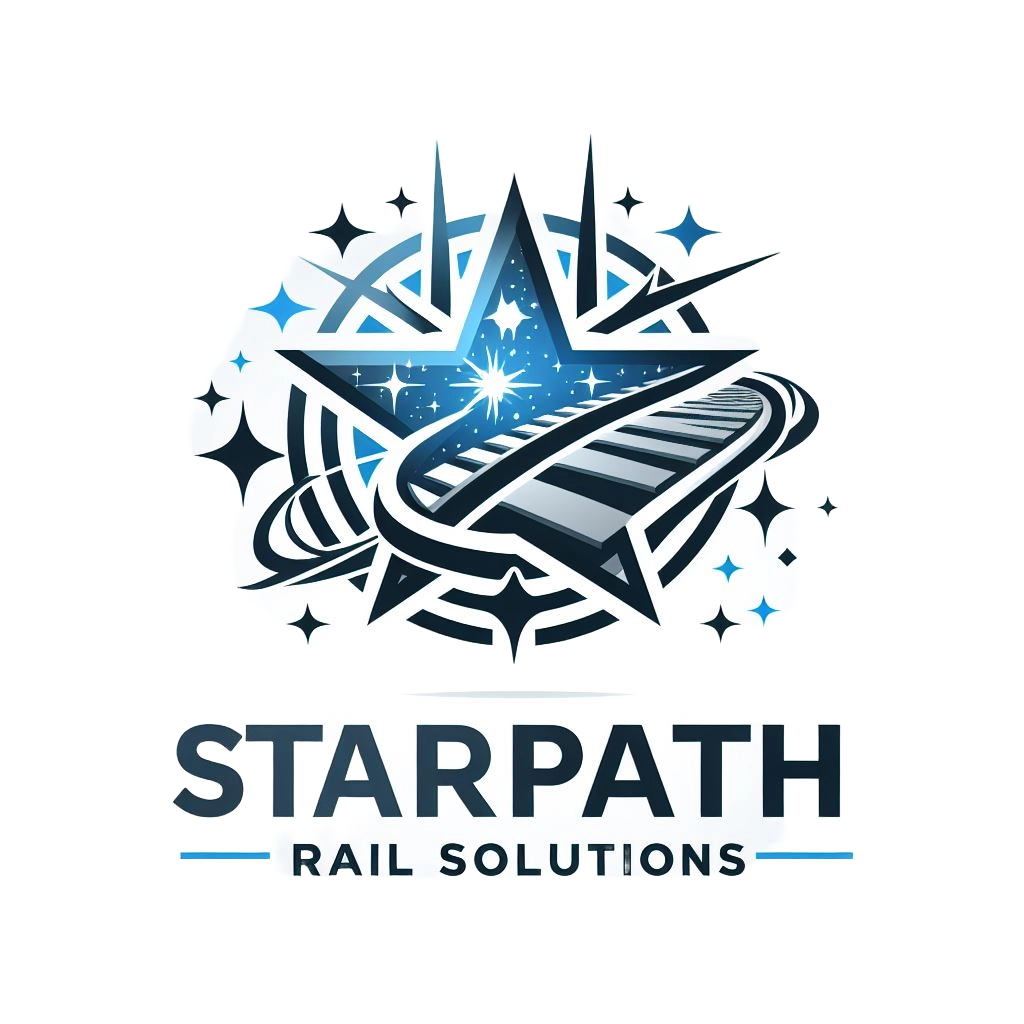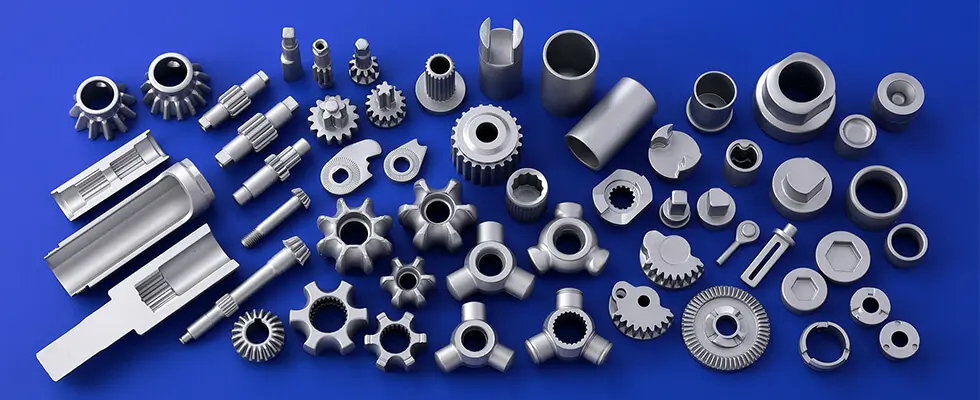Introduction
In the intricate world of manufacturing, particularly in industries like rail transportation where precision and durability are paramount, the selection of a custom forging parts supplier can significantly impact product quality, operational efficiency, and ultimately, business success. At StarPath Rail, we’ve honed our expertise in sourcing critical components over decades, recognizing that the right partnership with custom forging metal parts companies is not just a procurement decision—it’s a strategic imperative.
This comprehensive guide draws from our extensive experience to provide you with an in-depth understanding of how to evaluate and select the best custom forging parts manufacturers and exporters. Whether you’re seeking a new supplier or reassessing your current partnerships, this article will equip you with the knowledge to make informed decisions that align with your quality standards and business objectives.
Understanding Custom Forging: A Deep Dive
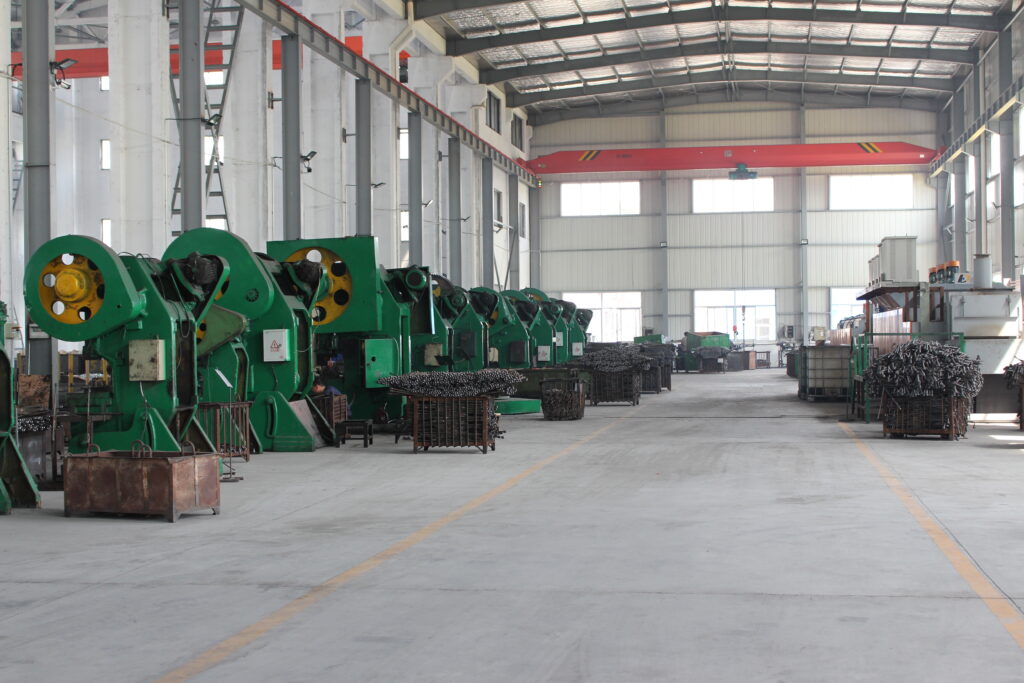
Before we delve into the evaluation process, it’s crucial to have a solid grasp of what custom forging entails and why it’s so vital in industries requiring high-performance components.
What is Custom Forging?
Custom forging is a specialized metalworking process where metal is heated and shaped using compressive forces to create high-strength parts with specific geometries. Unlike mass-produced, off-the-shelf components, a custom forging part is tailored to meet unique specifications, often resulting in superior strength, durability, and performance.
Types of Custom Forging Processes
- Open Die Forging: Ideal for large, simple shapes and low-volume production.
- Closed Die Forging: Suitable for complex shapes and high-volume production.
- Impression Die Forging: Offers tight tolerances and is cost-effective for medium to high volumes.
- Roll Forging: Efficiently produces long parts with uniform cross-sections.
Materials Commonly Used in Custom Forging
Applications in the Rail Industry
At StarPath Rail, we utilize custom forged parts in various critical applications:
- Locomotive engine components
- Railcar coupling systems
- Track switching mechanisms
- Brake system components
According to a 2023 market report by Grand View Research, the global railway components market size was valued at $77.3 billion in 2022 and is expected to grow at a CAGR of 3.2% from 2023 to 2030, underscoring the importance of high-quality custom forging in this sector.
Key Factors in Evaluating Custom Forging Suppliers

1. Production Capabilities
When assessing custom forging metal parts companies, it’s essential to thoroughly evaluate their production capabilities to ensure they can meet your specific needs.
Factors to Consider:
- Types of Forging Processes: Ensure the supplier offers the specific processes required for your parts.
- Maximum Part Sizes and Weights: Verify that the supplier can handle the dimensions and weights of your components.
- Material Capabilities: Check if they work with the materials you need, especially for specialized alloys.
- Production Capacity and Lead Times: Assess if they can meet your volume requirements and delivery schedules.
Data Point:
A 2022 survey by the Forging Industry Association found that 68% of custom forging parts manufacturers have invested in new equipment or technologies in the past two years to enhance their production capabilities.
2. Quality Management
For critical components, quality is non-negotiable. A robust quality management system is essential for ensuring consistent, high-quality custom forging parts.
Key Aspects to Evaluate:
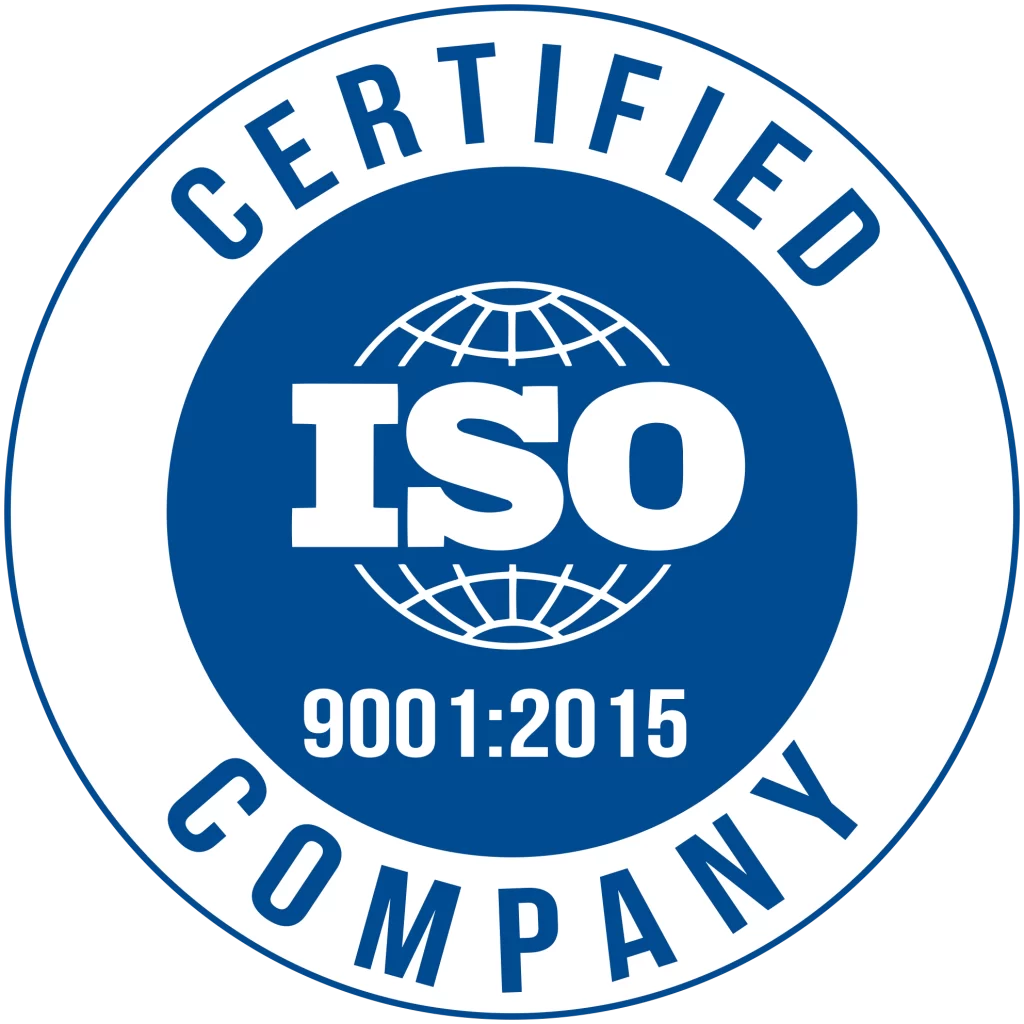
- Quality Certifications: Look for ISO 9001, AS9100, or industry-specific certifications.
- In-house Testing and Inspection Capabilities: Verify the supplier’s ability to perform necessary quality checks.
- Defect Rates and Quality Control Processes: Request data on historical defect rates and understand their quality control procedures.
- Traceability Systems: Ensure the supplier can provide full traceability for materials and processes.
Data Point:
According to a 2023 report by Quality Magazine, companies with robust quality management systems report up to 40% fewer defects and 25% lower quality-related costs.
3. Technical Expertise
The best custom forging parts manufacturers offer more than just production capabilities—they provide valuable technical expertise that can enhance your product design and performance.
Look for Suppliers Who Offer:
- Design Assistance and Optimization: Ability to suggest improvements to part designs for better performance or cost-effectiveness.
- Material Selection Guidance: Expertise in recommending the best materials for specific applications.
- Heat Treatment and Secondary Operations: In-house capabilities for heat treating and finishing operations.
- Prototyping Capabilities: Ability to produce prototypes quickly for testing and validation.
Case Study:
At StarPath Rail, collaboration with a custom forging supplier led to a 15% weight reduction in a critical locomotive component while maintaining strength requirements, resulting in improved fuel efficiency.
4. Pricing and Value
While cost is a crucial factor, it’s important to consider the total value proposition when evaluating custom forging metal parts quotes and price lists.
Considerations for Cost Evaluation:
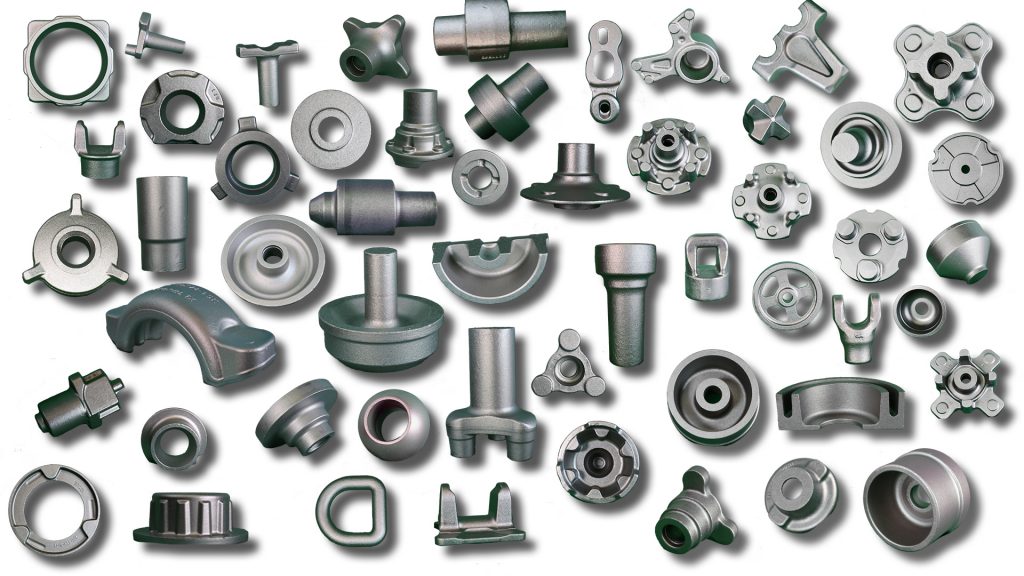
- Detailed Pricing Structure: Request a comprehensive custom forging metal parts price list.
- Volume-based Pricing: Understand how prices change with different order volumes.
- Total Cost of Ownership: Consider factors beyond unit price, such as quality, reliability, and potential for cost savings over time.
- Value-Added Services: Assess any additional services offered that could provide cost benefits.
Data Point:
A 2023 study by Deloitte found that companies focusing on total cost of ownership rather than just unit price in their supplier selection process reported 23% higher satisfaction with supplier performance and a 12% reduction in overall supply chain costs.
5. Export Capabilities
For businesses sourcing internationally, evaluating the export capabilities of custom forging metal parts exporters is crucial.
Key Factors to Assess:
- Experience with International Shipping: Verify their track record in managing international logistics.
- Compliance with Trade Regulations: Ensure they understand and adhere to relevant trade laws and regulations.
- Communication Across Time Zones: Assess their ability to provide responsive communication despite time differences.
- Currency and Payment Terms: Understand their flexibility in dealing with different currencies and payment methods.
Data Point:
According to a 2023 World Bank report, companies engaged in international trade face 70% higher compliance costs compared to those operating domestically, highlighting the importance of partnering with experienced exporters.
The Comprehensive Supplier Evaluation Process

To ensure you select the best custom forging parts supplier for your needs, follow this detailed evaluation process:
1. Initial Screening (2-3 weeks)
- Review potential suppliers’ websites and request a custom forging part pricelist.
- Conduct preliminary research on company reputation and financial stability.
- Create a shortlist of 5-10 potential suppliers based on initial criteria.
2. Request for Quotation (RFQ) (3-4 weeks)
- Prepare detailed specifications for your custom forging part requirements.
- Send RFQs to shortlisted suppliers, requesting custom forging metal parts quotes.
- Include specific questions about capabilities, quality systems, and value-added services.
3. Capability Assessment (4-6 weeks)
- Evaluate responses to RFQs, comparing technical capabilities, quality systems, and production capacity.
- Request additional information or clarifications as needed.
- Conduct phone or video interviews with promising candidates.
4. Site Visits (2-3 weeks per visit)
- For top candidates, conduct on-site audits of their facilities.
- Assess equipment, processes, quality controls, and overall operations firsthand.
- Meet with key personnel to gauge expertise and cultural fit.
5. Sample Orders (6-8 weeks)
- Place small orders with 2-3 finalists to assess quality, communication, and delivery performance.
- Conduct thorough testing and evaluation of sample parts.
6. Negotiation and Contracting (4-6 weeks)
- Based on all collected data, select the best-fit supplier(s).
- Negotiate terms, pricing, and establish a formal agreement.
- Develop key performance indicators (KPIs) for ongoing supplier evaluation.
Emerging Trends in Custom Forging
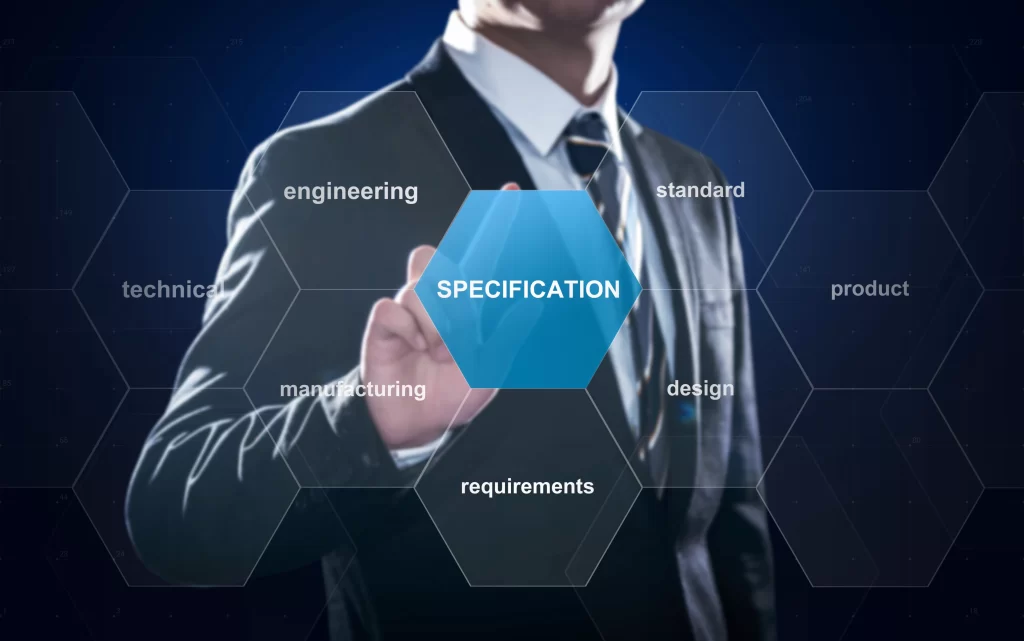
To stay competitive, consider suppliers who are embracing these emerging trends:
- Advanced Materials: Look for suppliers experimenting with new alloys or composite materials that offer improved performance characteristics.
- Digital Thread: Evaluate the use of digital technologies for design, simulation, and production tracking, which can enhance efficiency and quality control.
- Additive-Assisted Forging: Consider suppliers exploring the combination of 3D printing and traditional forging for creating complex geometries or reducing material waste.
- Sustainable Practices: Assess suppliers’ efforts in implementing energy-efficient processes and using recycled materials, as sustainability becomes increasingly important in the industry.
- AI and Machine Learning: Look for suppliers leveraging AI for process optimization and predictive maintenance, which can lead to improved quality and reduced downtime.
Data Point:
A 2023 McKinsey report found that manufacturing companies adopting Industry 4.0 technologies, including those in custom forging, have seen productivity increases of up to 30% and quality improvements of up to 50%.
The Importance of Long-Term Partnerships

Building strong, long-term relationships with custom forging parts suppliers can lead to significant benefits:
- Collaborative Problem-Solving: A trusted supplier becomes an extension of your team, offering insights and solutions.
- Preferential Pricing and Lead Times: Long-term partners often provide better terms and prioritize your orders.
- Continuous Improvement: Ongoing relationships foster a culture of continuous improvement in quality and processes.
- Joint Innovation Initiatives: Collaborative innovation can lead to breakthrough products and processes.
Case Study:
At StarPath Rail, a 10-year partnership with a key custom forging supplier has resulted in a 22% reduction in component costs, a 35% improvement in lead times, and the joint development of three patented technologies.
Conclusion
Selecting the right custom forging parts supplier is a critical decision that impacts product quality, costs, and time-to-market. By thoroughly evaluating potential partners based on their capabilities, quality, pricing, and expertise, you can establish a robust supply chain for your custom forged components.
At StarPath Rail, we’ve honed our supplier evaluation process through years of experience in the rail industry. We understand the unique challenges of sourcing custom forging metal parts and have developed strategies to ensure we partner with the best custom forging parts manufacturers and exporters.
Remember, the goal is not just to find a supplier, but to cultivate a partnership that drives innovation, quality, and success in your custom forging projects. By following this comprehensive guide and staying attuned to industry trends, you’ll be well-equipped to make informed decisions that propel your business forward.
For more information on how we can assist you with your custom forging needs or to learn more about our rail solutions, please contact us or explore our services. Let’s forge a path to success together.
